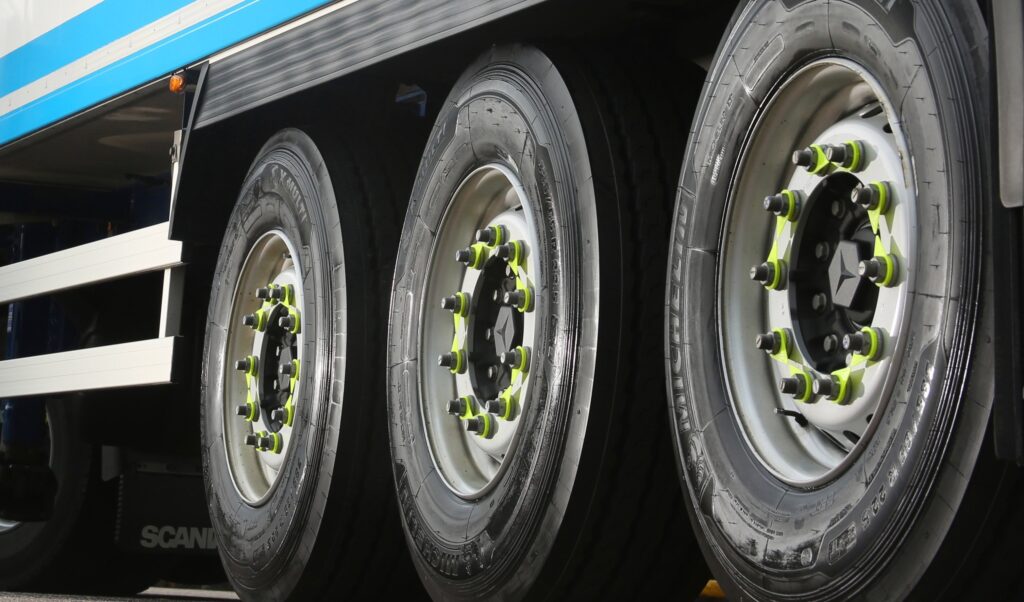London, UK: Legislation changes will allow longer trailers in the UK from the end of the month. The decision follows trials started in January 2012 that have been deemed a success – they demonstrated no safety risks but large carbon savings to reduced mileage.
The law change will allow trailer combinations up to 18.55 metres in the UK, 2.05 metres longer than the current maximum. The maximum gross weight remains unchanged at 44 tonnes. Legislation will be laid today (10 May 2023) to roll out the vehicles on roads from 31 May. It is predicted that longer trailers will reduce the number of journeys by 8% and save 70,000 tonnes of carbon dioxide.
During the 11-year trial involving some 300 companies and 3,000 trailers, longer trailers were involved in around 61% fewer personal injury collisions than conventional lorries.
Operators including brands such as Greggs, Morrisons, Stobart, Royal Mail, and Argos have participated in the trials. Gavin Kirk, supply chain director, Greggs, said: “Greggs has been operating LSTs [longer semi-trailers] from our national distribution centre in Newcastle. We were early adopters of the trial as we saw significant efficiency benefits from the additional 15% capacity that they afforded us.
“We have converted 20% of our trailer fleet to LSTs, which was the maximum allowable under the trial, and these complement our fleet of double-deck trailers. Our drivers undertook additional training to use these trailers and we have monitored accidents, finding that they are as safe as our standard fleet.

“Due to the increased capacity, we have reduced our annual kilometre travel by 540,000km, and saved 410 tonnes of carbon per year from LSTs.”
Chris Yarsley, senior policy manager, Logistics UK, said: “The introduction of longer semi-trailers into general service will increase the scope and scale of the goods which our industry is able to transport, increasing efficiencies and reducing the environmental impact of delivering for the UK’s economy.
“Over the past few years of the trial, our members have proved that LSTs provide operators with a cost-efficient, environmentally prudent alternative to conventional vehicles and our members remain committed to rolling them out across the wider industry as soon as possible.”
Pictured above is one of Morrisons longer length trailers on trial.
Opinion: longer trucks pose no threat
London, UK: Predictably, the anti-truck lobby has responded to the government’s decision to allow longer length trailers to operate in the UK with the usual outcry of dire warnings of death and injury and a few of the old chestnuts, like moving more freight onto railways, added for good measure. The Campaign for Better Transport said the change was was a “deeply retrograde step” which will “do nothing to tackle carbon emissions or air pollution”. Spokesman Norman Baker added that the bigger “tail swing” of the lorries presented a “danger to other road users and pedestrians”. He added: “Rather than longer lorries, the government should be working to ensure more freight is moved by rail – an efficient, safe and clean alternative with just one freight train capable of removing up to 129 lorries from our roads.”
It seems tedious to have to counter this nonsense pointing out that railways lines don’t serve many supermarkets or other high street outlets. More fundamental is the simple statistic that doubling rail freight – which would be a formidable move and well beyond the capabilities of the railway network – would merely remove a typical year’s growth in road freight. Campaigners say long lorries have not been adequately tested in town centres and rural areas citing figures to show HGVs are involved in a disproportionate number of road deaths. But then trucks, although there are far fewer especially at maximum weight, cover more than 20 times the mileage of a typical car which goes some way to explaining the disproportionate accident rate.
The DfT said the vehicles had been involved in “around 61% fewer personal injury collisions than conventional lorries” which would suggest that simple length increases are not inherently dangerous. But this is dismissed on the grounds that the trials examined mainly motorways and A-roads. However, this is where you would expect to find most longer length trailers that suit trunking not final delivery. Urban areas, where pedestrian and cyclist fatalities are more common, have predominantly rigid vehicle commercial traffic.
Under the new rules, operators will be legally required to carry out risk assessments and ensure they take appropriate routes.







